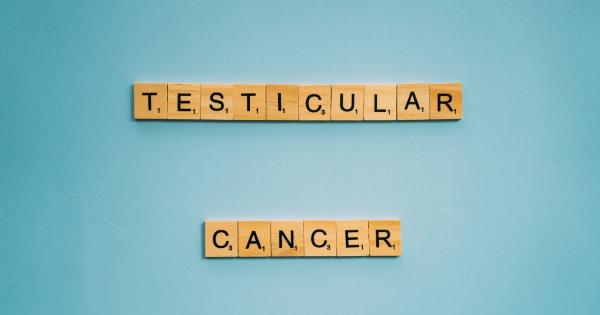Cancer, a term that strikes fear into the hearts of many, is a disease characterized by the abnormal growth of cells in the body. Early detection plays a critical role in successful treatment and improved prognosis.
Therefore, it is essential to be aware of the common cancer symptoms that should not be ignored. Recognizing these symptoms and seeking medical attention promptly can potentially save lives. Here are ten common cancer symptoms that you should never ignore:.
1. Unexplained Weight Loss
Significant and unexplained weight loss can be an early sign of various types of cancer.
If you notice a sudden and substantial decrease in your weight without making any changes to your diet or exercise routine, it is crucial to consult your healthcare provider. Unexplained weight loss can be associated with cancers of the stomach, lung, pancreas, or esophagus.
2. Persistent Fatigue
While feeling tired is a part of our daily lives, persistent fatigue that doesn’t improve with rest can be a red flag for cancer.
Chronic fatigue is often associated with blood cancers like leukemia or lymphoma, as well as cancers of the colon, stomach, or liver. If you are experiencing extreme tiredness that lasts for an extended period, make sure to discuss it with your doctor.
3. Changes in Skin Moles
Monitoring changes in your skin is crucial for early detection of skin cancer. Pay attention to any moles or growths on your skin that change color, shape, or size.
If a mole becomes irregularly shaped, develops uneven borders, or starts bleeding, it is essential to consult a dermatologist immediately. Melanoma, the most deadly type of skin cancer, can spread quickly if not detected early.
4. Persistent Pain
Chronic pain that persists for an extended period without any clear cause should not be ignored. While it can have various underlying reasons, it is advisable to consult a healthcare professional if the pain does not subside.
Unexplained pain can be a symptom of different types of cancers, including bone, brain, colon, or ovarian cancer. Timely medical evaluation can help identify the cause and initiate appropriate treatment.
5. Unusual Bleeding
Unexplained bleeding can be indicative of several types of cancer. Unexpected bleeding between menstrual periods, after menopause, or in urine or stool should be evaluated by a doctor promptly.
It can be a sign of cervical, uterine, colorectal, or bladder cancer. Similarly, blood in cough or vomit can be related to lung, throat, stomach, or liver cancer. Prompt medical consultation is essential in such cases.
6. Persistent Cough or Hoarseness
If you have a persistent cough or hoarseness that lasts for more than a few weeks without any obvious reason, it is a cause for concern.
While many respiratory infections can cause temporary symptoms, a persistent cough or hoarseness can also be a symptom of lung, throat, thyroid, or laryngeal cancer. It is crucial to consult a healthcare professional to rule out any underlying serious conditions.
7. Digestive Problems
Changes in bowel habits, including persistent diarrhea or constipation, can signal an underlying problem, including colorectal cancer.
Other digestive issues such as difficulty swallowing, frequent indigestion, or a feeling of fullness even after light meals should be evaluated by a doctor. These symptoms can be associated with stomach, esophageal, or pancreatic cancer. Prompt medical attention can help determine the cause and initiate appropriate treatment.
8. Difficulty in Urination
Experiencing persistent difficulties while urinating, including pain, frequent urination, and blood in urine, can be indicative of prostate, bladder, or kidney cancer.
While these symptoms can also be related to benign conditions, such as urinary tract infections, it is essential to consult a healthcare professional to rule out any serious underlying causes.
9. Changes in Breast Appearance
Being aware of any changes in the breasts is crucial, especially for women. While a lump or thickening in the breast is the most well-known symptom of breast cancer, other signs should not be ignored.
These include changes in breast size or shape, nipple discharge, dimpling of the skin, or redness or scaliness of the nipple or breast skin. If you notice any of these changes, seek medical attention to get a proper evaluation.
10. Persistent Swelling
If you notice persistent swelling in any part of your body without any apparent reason or injury, it is important to discuss it with a healthcare provider. Unexplained swelling can be associated with cancers such as lymphoma or leukemia.
Prompt diagnosis and appropriate treatment can help manage these conditions effectively.





























